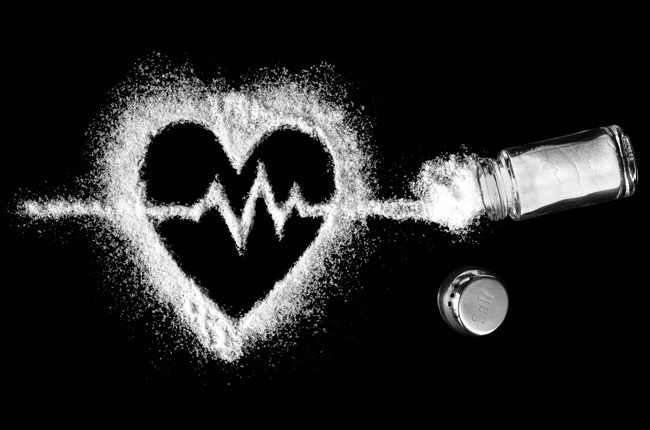
- Adding extra salt to your food at the table could increase your risk of heart disease.
- This does not mean that you should not season your food, but rather try to avoid adding extra salt after the fact.
- Researchers from Tulane University, USA, have urged people to consider removing salt shakers from dining tables to reduce sodium intake.
It's time to shake up your salt habits.
Researchers from Tulane University in the US have urged people to consider removing salt shakers from dining rooms to stop sprinkling salt on food while eating to reduce sodium intake.
According to scientists, adding additional salt to food less frequently is associated with a reduced risk of heart disease, heart failure, and ischemic heart disease.
READ MORE | Brown or white: Which rice or sugar is better for your health? We ask a dietitian
"Overall, we found that people who don't shake on a little additional salt to their foods very often had a much lower risk of heart disease events, regardless of lifestyle factors and pre-existing disease," said Dr Lu Qi.
"We also found that when patients combine a DASH (Dietary Approaches to Stop Hypertension) diet with a low frequency of adding salt, they had the lowest heart disease risk. This is meaningful as reducing additional salt to food, not removing salt entirely, is an incredibly modifiable risk factor that we can hopefully encourage our patients to make without much sacrifice."
The DASH diet refers to an eating plan rich in fruit, vegetables, whole grains, low-fat dairy, nuts and legumes.
READ MORE | Should you peel your fruit and vegetables? A nutritionist weighs in
The study, which included over 176 000 participants from the UK Biobank, evaluated whether the frequency of adding salt to foods was linked to heart disease.
The research found that people who added less salt to food were more likely female, white, with a low body mass index, moderate alcohol consumers and more physically active. These participants also had a higher prevalence of hypertension and chronic kidney disease but a lower prevalence of cancer and were also more likely to stick to a DASH diet.
The association between adding salt to food and heart disease was stronger in participants of lower socioeconomic status and smokers.




 Publications
Publications
 Partners
Partners











